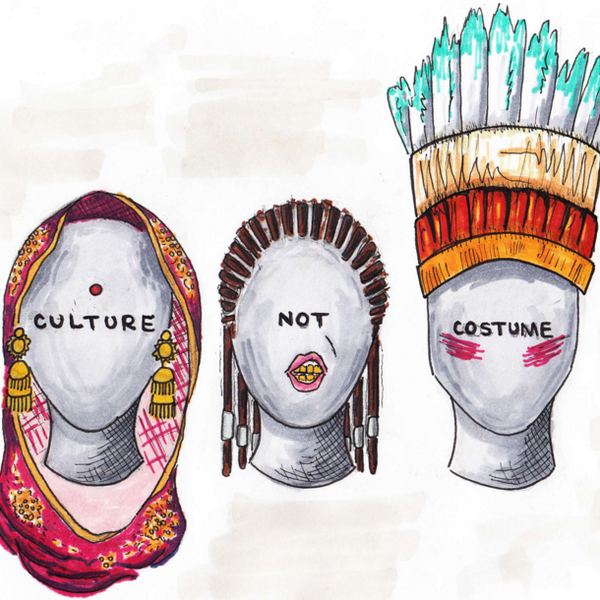Earlier this week, I read a headline on For Harriet which read, "Federal Court Rules It's Legal Not to Hire Black Woman Applicant Because of Her Locs." As I read through the article, several emotions permeated my soul: frustration, annoyance, and sadness. I myself am a black woman, and I also have
"Cultural hegemony is the domination of a culturally diverse society by the ruling class who manipulate the culture of that society—the beliefs, explanations, perceptions, values, and mores—so that their imposed, ruling-class worldview becomes the accepted cultural norm..." (Wikipedia).
I thought about the potential impact of this court decision throughout the week and decided to take to my keyboard to express my discontent. At first, I was going to write a listicle and title it, "10 Things Corporate America Should Know about Locs." However, while reflecting on the issue at length, the phrase "cultural hegemony" came to mind. (Many thanks to my amazing 10th grade AP World History teacher). So, here, I will speak to people with
We are the sheep wearing the 'wolves' clothing. I look at the world through films, documentaries, and books, and I see people from colonized countries who seemingly follow and accept the ways in which colonizing nations have manipulated and erased their cultures.
In my mind's eye, I see snapshots of the film Gandhi and documentaries of turn-of-the-century India, as men traded khadi for slacks and button down shirt.
I see video clips of cosmopolitan centers in Africa, in which the men are not wearing boubou, kanzu, or dashiki, but jeans, t-shirts, or polo short sleeves.
I see the film version of, Memoirs of a Geisha, in which women trade kimono for American designed 1940s A-line dresses.
I walk down the street, and I see the many Indian women who work in the corporate banking centers of Wilmington, Delaware, and wonder what it feels like to trade sari for skirt suit.
I wonder what it must be like for the many men who come to America from the Middle East to trade thawb for suit and tie.
Then I think of my sisters and brothers who did not immigrate of their own volition, but were purchased, kidnapped, and brought to the Americas, wherein they suffered physical, spiritual, and psychological slavery. In that slave trade, our right to creative expression was taken. Locs, braids, and shaven patterns of all different sizes and formations were lost. African hairstyles that revealed a person's age, class, and social position within a tribe were removed by force, and with that, a sense of individuality. Our hair, which white slave owners called "wooly," "matted" and "nappy," had to be pulled back without adornment of any kind.
Even after slavery, racist conceptions of beauty distorted the evolution of our fashion. Hot combs, hot curlers,
Today, people of African descent have created beauty from these ashes, using weaves, wigs, and other styling tools to create hairdos that are uniquely African American. However, it cannot be denied that these styling tools were born from a necessity to assimilate into the hegemonic European culture.
The modern day 'politics of respectability' is born of this troubled history. Within the African American community, leaders of all kinds--preachers, principals, business owners, and artists--continue to debate over what style of dress and appearance is appropriate for black people: should black men wear sagging jeans, should black women wear afros...should black people wear their hair in
I say, unequivocally, that to deny a people, any people, of their right to style their hair and bodies as their ancestors have done is to deny them their right to practice their cultural traditions, and is thereby a continuation of colonialism via the practice of cultural hegemony. The suggestion that one's style of dress is potentially 'distracting' or 'unkempt' is explicit ignorance and insinuation that the cultures of the peoples of the third world are not "professional." If we go back to a time before political correctness let racism hide in the shadows, the words used to refer to countries who do not traditionally wear Levi jeans and t-shirts (made of cotton picked by African slaves) would be backward, uncivilized, and barbaric. It follows to conclude that within corporate America, cultural superiority is very much alive, and pervades not only the cubicles of this country but every aspect of our global and cosmopolitan culture. Is cultural hegemony business professional? Yes, it says so in your company's human resources grooming policy handbook.
Note: Thank you to Mr. Cummings, my 10th grade AP World History teacher, whose teachings opened my mind to this interesting and amazing planet we live on.





















